
Bill Nelson: “Of course, nonsense can make great sense too in the right setting.”
Including his work in Be-Bop Deluxe, this uncompromising English songwriter has remained true to his vision throughout his long career
It’s hard to succinctly summarise the career of Bill Nelson, such is the prodigious nature of his output. Famous as the innovative guitarist, vocalist and chief songwriter of 70s art rock group, Be-Bop Deluxe, Nelson had already released his first solo album, 1971’s Northern Dream, before forming his most renowned band. Best known for the single Ships In The Night, the group disbanded after producing five studio albums of innovative and forward-looking music.
Up next came Red Noise and the influential release Sound-on-Sound in 1979. Its severe sound, helped along by a healthy dose of synth, was another stylistic shift from Nelson – further hinting at the experimental and restless nature of his writing.
Nelson’s solo career has seen him form his own record label, produce albums by other artists and maintain his own relentless pace. With so many albums to his name, his back catalogue might seem impregnable to those not yet familiar with his work. We’d recommend the mature pop of the 1983 album Chimera or 2003’s Whimsy, which proved that his mastery of the guitar was alive and well, as good places to start. But wherever you begin, your next destination will likely confound as it takes a sharp turn.
Of specific interest to us today is the remastered and expanded version of the double album Chance Encounters In The Garden Of Lights and Songs For Ghosts, an album of vocal pieces that came out last year. Really though, these are just entry points to gain us access to this uncompromisingly creative artist…
Have you enjoyed the process of remastering and rereleasing so much of your old work?
“It’s been nice to see my old Cocteau Records catalogue getting reissued, and the reviews have been good, but, to be honest, I haven’t been involved in the remastering of them, I’ve left that to Esoteric Records and they’ve done a very nice job of it. But in a couple of cases, I didn’t feel that a remastering would improve things, some albums sounded just fine as they were, so those ones were left alone.”
Why did you feel that now was the correct time for these projects?
“I don’t know if there’s a ‘correct’ time for reissuing albums, other than some years need to have passed since their original release. I was approached by Esoteric with a view to licensing the albums from me. It seemed like a good idea, especially as there were quite a number of them and I didn’t really have the time to deal with reissuing them myself. I’m always looking to the future and find it difficult to focus too much on past work, so it was good that someone was willing to take on the catalogue and do it justice. I did get involved with aspects of the packaging, along with writing new sleeve notes.
“One of the initial projects that we undertook was a massive career overview, a box set of 8 CDs with various examples of my recordings over the years. Its title was The Practice Of Everyday Life and it was intended as a celebration of 40 years of my work. I was more directly involved with that. The packaging for the project was very, very special. I sourced lots of rare photos and memorabilia from my archives which were put into a book that came with the package. I’m very proud of the way it turned out, it looks absolutely stunning.”
You’ve said Chance Encounters In The Garden Of Lights is perhaps the “most personal and yet least demonstrative” of all your music. Why do you think that is?
“It was my most personal statement, at that time, but of course, as time moves on so does your personality to some degree. We change and develop our ideas and so on. So it might not be seen as my most personal album today, there have been several ‘most personal’ albums since then. Nevertheless, back when I recorded it, it was personal in that it was inspired by my study of various esoteric philosophies, occult and alchemic texts, Gnosticism and mysticism of various kinds. I’d become involved with Rosicrucian Lodges, fringe areas of Freemasonry, Martinism and more.
“Looking back on it now, I’d become deeply passionate about that kind of subject matter, but now it’s simply been absorbed into the unconscious fabric of things that have inspired me over the years, along with lots of other stuff. It certainly helped shape my sensibilities in one way or another, but it’s only one aspect of who I am. I wouldn’t say it defines my work. But there’s a certain pre-occupation with dreams, memory and the nature of time, which is probably the most persistent thread running through it these days.
“As for Chance Encounters… being the least demonstrative of my work, I think I said that because it doesn’t try to seduce the listener with technical flummery. It’s has quite a stripped back, minimalist approach. The tracks are all relatively short, single thoughts simply stated, lasting just long enough for the main idea to be conveyed without fuss. You could say that they’re like Haikus in musical form.”

Bill Nelson: “We can only make the music that feels authentic to us, speaks to our own peculiar sensibilities.”
Does that suggest you tend to shy away from the personal in your writing?
“No, not at all. One concern I have is that I can’t escape writing from a personal perspective. I do sometimes invent totally fictitious scenarios for some songs, with imaginary protagonists, but not often. Even when the lyrics may seem non-linear or surreal, there is inevitably something of the personal in them. Perhaps for some artists, and for me in particular, that’s just the way the cookie crumbles. It doesn’t have to be a literal and obvious reference to personal experience, sometimes you embark on the songwriting process with exactly the opposite effect in mind, but somehow, when all’s done, the song still manages to say something about who you are, what you care about, what sort of person you might be. And sometimes you don’t discover, or make that connection until sometime after you’ve moved on and are able to hear the song with fresh ears.”
Are there any threads that tie together all of these projects? Do similar themes often present themselves to you?
“Subconsciously, probably, yes. I don’t know how many songs I’ve recorded since recording my first album back in 1970, Northern Dream. I’ve lost track of the number of albums I’ve released and it’s not something I think about often or calculate in any way. It’s just a continuous fountain of thought committed to tape or digital media. They’re like diary entries.
“The themes are sort of fragmented but at the same time whole, complete, just one long song. Perhaps someone else could better identify the various threads and maybe identify the overall theme but I’ve long given up any attempt to rationalise the creative impulse and just try to let it be. But as I said, dreams, memory and time tend to form regular subject matter. Everything I’ve ever been interested in finds its way into my work; art, literature, film, poetry, love, life, all the usual stuff!”
Did working on the reissues have an impact on the creation of Songs For Ghosts?
“I don’t think so. Every album occurs in its own space and time. It depends on how mindless or mindful the artist is at the point of creation. And some songs begin from an empty mind point of view and others from a more considered impulse. And by ‘mindless’ I don’t really mean unintelligent. ‘No mind’ can be a greater starting point than a mind full of nonsense. But that’s just my Zen Buddhist tendencies coming out, so feel free to ignore them…Of course, nonsense can make great sense too in the right setting! Context is everything.
How restrictive was it having to write for vocals alone?
“Lyrics, inevitably after writing so many songs, become problematic. What to sing about? What to say that hasn’t already been said? There’s always the option of falling back on the stereotypical love and relationships route of course. I don’t know…it’s not as if I’ve never written tender love songs, but it’s possible to approach such things from a different angle, a sort of system of codes, or in a symbolic sense. On the other hand, direct, clear statements of romantic sentiments can be very powerful.”
“Some of my favourite classic songs from a long parade of music history deal wonderfully with ordinary sentiments and I melt when I hear them, whether it’s Hoagy Carmichael, Jerome Kern, Johnny Mercer, etc. or Bob Dylan, Nick Drake, Joni Mitchell, Burt Bacharach and hundreds of others.
“Despite my admiration for such talents I have to accept I’m trapped in my own particular bubble with whatever my voice and limitations are. We can only make the music that feels authentic to us, speaks to our own peculiar sensibilities. What anyone else asks of us shouldn’t, in my opinion, trouble the true artist. Music that is purely made to suit a certain preconception of what an audience wants, or for a particular marketplace, might be cleverly constructed but it is more a construction rather than something organic and unconscious. But I accept that not everyone will see it that way. In a sense, there’s no absolute right or wrong in this, it’s just my way of dealing with things.”

Bill Nelson: “The adventure goes on, there’s no choice, no reverse gear, no rear view mirror, just the road stretching ahead.”
From the outside, your output looks incredibly prolific, are you someone who is constantly creating or do you ever hit a brick wall / need a break?
“I write and record constantly. As I mentioned, it’s like making an entry in a diary, perhaps coupled with painting a picture. It’s a daily, ongoing activity but never feels like work, even though it’s sometimes troublesome or difficult. It’s simply what I do. I love doing it, it brings a deep sense of satisfaction and helps enlighten and fulfil me. Writing music and lyrics has brought so much aesthetic awareness into my life and I’m blessed to have been able to do it for so long, especially with the relative freedom to operate outside of the narrower, more commercial confines of the music industry.
“I’m lucky in that I’ve not yet hit a brick wall, though the possibility of that might well arise, but I seem to have more ideas percolating than I have time to realise them. But, who knows…maybe one day I’ll run out of steam, but not for a long time yet I hope!”
Where do you turn to when in need of inspiration?
“To different things at different times. Depends on the mood of the moment. It’s an emotional response, tempered by an intellectual one in some ways. It can be worries and concerns, melancholy, sadness, nostalgia, love and romance, past and present. It can be ironic things, retro-futurism, surrealist ploys, dreams, darkness and light, the search for meaning, existentialist stuff. It’s all up for grabs. No shame, no second guessing. As one of my heroes, Jack Kerouac, said, ‘First thought, best thought.’ Or, as another hero, Jean Cocteau said, ‘Cultivate what others criticise you for, it is you…’ To be yourself and damn the torpedoes is a way of finding your originality and discovering an authentic sense of self.”
What were the most important songwriting lessons you learnt during your time with both Be-Bop Deluxe and Red Noise?
“It feels like an eternity ago now, but paradoxically, like only yesterday. I don’t know, sometimes it feels a bit of a millstone around my neck, other times I’m deeply grateful for the start that those projects gave to my career. I guess I’m ambivalent about it. I hear those recordings and marvel at how young and naive I was, and yet how fearless. It’s what it is, or rather what it was, marks in the sand, signposts along the way. But the adventure goes on, there’s no choice, no reverse gear, no rear view mirror, just the road stretching ahead.”
On a similar theme, did running your own label allow you to explore writing in a way that wasn’t previously possible?
“It allowed a certain amount of freedom. I don’t remember, when I first began Cocteau Records, whether I had any overriding commercial considerations or not. Probably not as I’ve never really approached my ‘career’ as a career. I’ve stumbled from one thing to another with no great intention of achieving anything beyond making the music I heard in my head. I don’t know, does that stand for something? Does creative stubbornness count for much in today’s world? Who knows!?”
Lastly, do you have any songwriting ambitions that you still hope to achieve?
“I’d love to be able to compose for a live orchestra, even though I don’t read or write music. I’ve approximated this on some of my albums using keyboards to replicate the sounds of a symphony orchestra, but to have someone translate those ideas into charts for a real orchestra to play would be wonderful.
“But, all such fantasies aside, my ongoing ambition is to make an album where I can truly say, ‘That’s it, I’m done.’ But, I’m a long way off that yet!”
Interview: Duncan Haskell
To find out more about all of Bill’s latest projects, head to billnelson.com



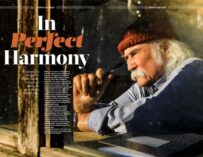

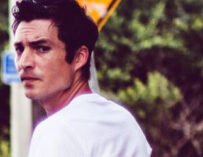
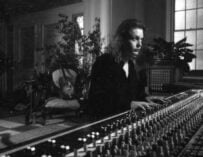

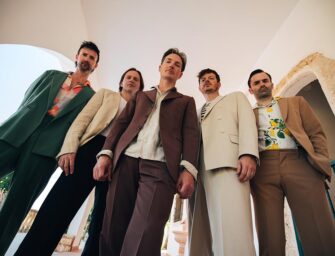

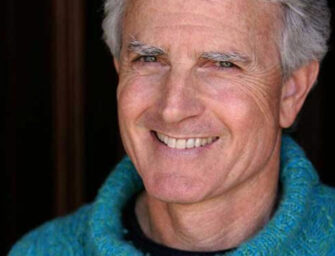

























Nice interview, Bill. It would be nice to spark a few new converts to the Cause!
Nice interview